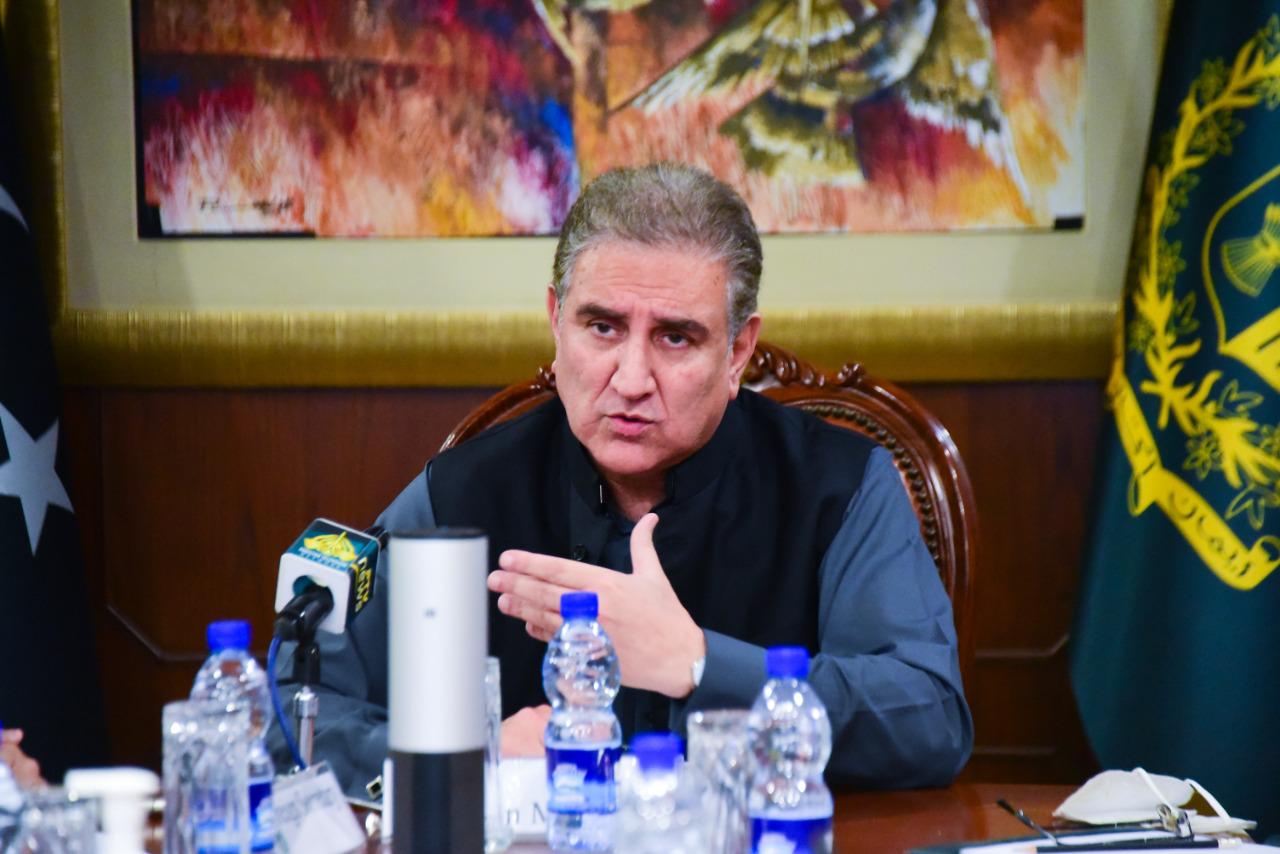Pakistan alleged Indian conspiracy to malign its image a day before terror financing and money-laundering watchdog FATF releases its review report.
Rafale Fighter Jets Spend A Record Time In The Air; Fly 17,000 Km While En Route To Tahiti
Pakistan figures in the ‘Grey List’ of the Financial Action Task Force (FATF) that is expected to release its key findings on June 25.
While the country maintains that it has complied with the recommendations of the FATF Action Plan, Foreign Minister Shah Mahmood Qureshi has accused India of maligning its efforts for political propaganda, even though the outcome will be solely based on Pakistan’s performance on the recommendations made by FATF.
Qureshi said that Pakistan has “fulfilled maximum technical requirements of the FATF” and there is no justification for the country to be on the grey list. He claimed Pakistan has fulfilled 26 out of 27 recommendations of the FATF Action Plan, reported The Express Tribune.
- At €7.8B, Why Indian Rafale Jets Are ‘Double The Cost’ Than Egyptian Rafales?
- Why Did Netizens ‘Mock’ Nigeria For Importing JF-17 Fighter Jets From Pakistan?
The FATF began its five-day virtual meeting on June 21 in Paris and is expected to share its findings on the performance of Pakistan on June 25. Stating that Pakistan has taken concrete measures to restrict money-laundering and terror financing, the minister accused arch-rival India of trying to misuse the global forum for political purposes and doing continuous propaganda against Pakistan, according to Express Tribune.

Blaming the previous government, the Foreign Minister said that Pakistan “inherited” the problem of FATF grey-listing.
The Finance Ministry of Pakistan issued a separate statement and assured the FATF of Pakistan’s commitment to implement the Action Plan. It said that “Pakistan had implemented the FATF Action Plan “effectively and expeditiously” in the past two years”, drawing praise from the international community.
What Does FATF Do?
A global watchdog for money laundering and terror financing, the Paris-headquartered body sets international standards that aim to prevent these illegal activities and the harm they cause to society. As a policy-making body, the FATF works to generate the necessary political will to bring about national legislative and regulatory reforms in these areas.
It was established in 1989 by the G-7 Summit to counter money laundering concerns. By 1992, its membership rose to 28 members which further increased to 39 members at present.
Stop money laundering, save lives. The FATF is holding a Plenary meeting this week to discuss key issues in the fight against money laundering and terrorist financing. See more details ➡️ https://t.co/iHYafwKb2J #FollowTheMoney pic.twitter.com/EfBnjJVTPy
— FATF (@FATFNews) June 24, 2021
The FATF Plenary, the decision-making body of the organization, meets thrice a year.
To make a country comply with its directives, the FATF places it on ‘Grey List’ as a final warning. Upon non-compliance, the country is then put on the ‘Black List’. Pakistan is among 19 countries that figure in the ‘Grey List’; while Iran and North Korea have been placed on ‘Black List’. In the past 12 years, the FATF has put Pakistan on the ‘Grey List’ thrice.
US, France Put Hurdles?
In 2018, the country was placed on the ‘Grey List’, with the FATF asking Pakistan to implement a 27-point action plan to restrict money-laundering and terror financing by the end of 2019. The deadline was extended due to the outbreak of the Covid-19 pandemic.
In its plenary meeting held in October 2020, FATF retained Pakistan on the ‘Grey List’ and gave it time till February 2021 to address “very serious deficiencies”, reported The Hindustan Times.
FATF President Marcus Pleyer had also stated that Pakistan would not be given a chance “forever” to address the issues, and any further non-compliance will lead to the black-listing of the country’
At the meeting, Pakistan was found to be compliant with 21 of 27 points in the action plan. Pakistan was found to be non-compliant with six conditions, including the failure to take action against most-wanted terrorists such as Jaish-e-Mohammad chief Maulana Masood Azhar, and Lashkar-e-Toiba chief Hafiz Saeed.
A new follow-up report sets out the progress that Pakistan has made to tackle money laundering and terrorist financing. See an update on the actions taken here ➡️https://t.co/SY3qeGSqJH #Pakistan #FollowTheMoney #APG pic.twitter.com/PUTBlv3FEP
— FATF (@FATFNews) June 4, 2021
The US had also expressed its displeasure over the acquittal of Ahmed Omar Saeed Sheikh, the prime accused in the kidnapping and murder of American journalist Daniel Pearl, and it was believed that Washington may have also recommended the continuation of Pakistan on the “Grey List’.
In February 2021, it was reported that many European countries, particularly France had recommended the FATF to keep Pakistan on the ‘Grey List’ as the country had still not complied with the suggested conditions of the action plan.
Earlier this month, the regional affiliate of the FATF, the Asia Pacific Group (APG), retained Pakistan on “enhanced follow-up” status.
The APG report noted, “Pakistan will move from enhanced (expedited) to enhanced follow-up, and will continue to report back to the APG on progress to strengthen its implementation of anti-money laundering and combating financing terror measures”.
What Should Pakistan Expect?
A Pakistani security analyst, Muhammad Amir Rana, writing for The Dawn mentioned that substantial relief may be on the cards for the country in the June Plenary meeting of the FATF.
In the February meeting, the FATF urged Pakistan for effective implementation of targeted financial sanctions against UN-designated terrorists, along with investigations and prosecutions of terror-financing cases.
Apparently, Pakistan has submitted its compliance report last month and indicated that it has strengthened Combating the Financing of Terrorism (CFT) regime.
There has been a spurt in fund-raising and recruitment by the #Taliban on Pakistani soil, reports @Rezhasan, @htTweets@SameerP_IND highlights that #Pakistan provides a conducive environment to raise money for terror financing and this is further mocking #FATF's efforts. pic.twitter.com/uyn6chNwsp
— Gateway House (@GatewayHouseIND) June 23, 2021
The emerging geopolitical equations in view of imminent US withdrawal from Afghanistan may also have a bearing on the outcome of the FATF meeting.
Rana said Pakistan should be wary of the Tehreek-i-Labbaik Pakistan (TLP), on whose demands the Imran Khan government initiated a parliamentary debate on the question of the expulsion of the French ambassador to Pakistan.
With France being an influential member of the FATF, this move by Pakistan may weaken its chances at FATF. The UK also placed Pakistan on its list of high-risk countries for money laundering and terror financing. And this development may have a link with the TLP and UK’s solidarity with France, said Rana.




